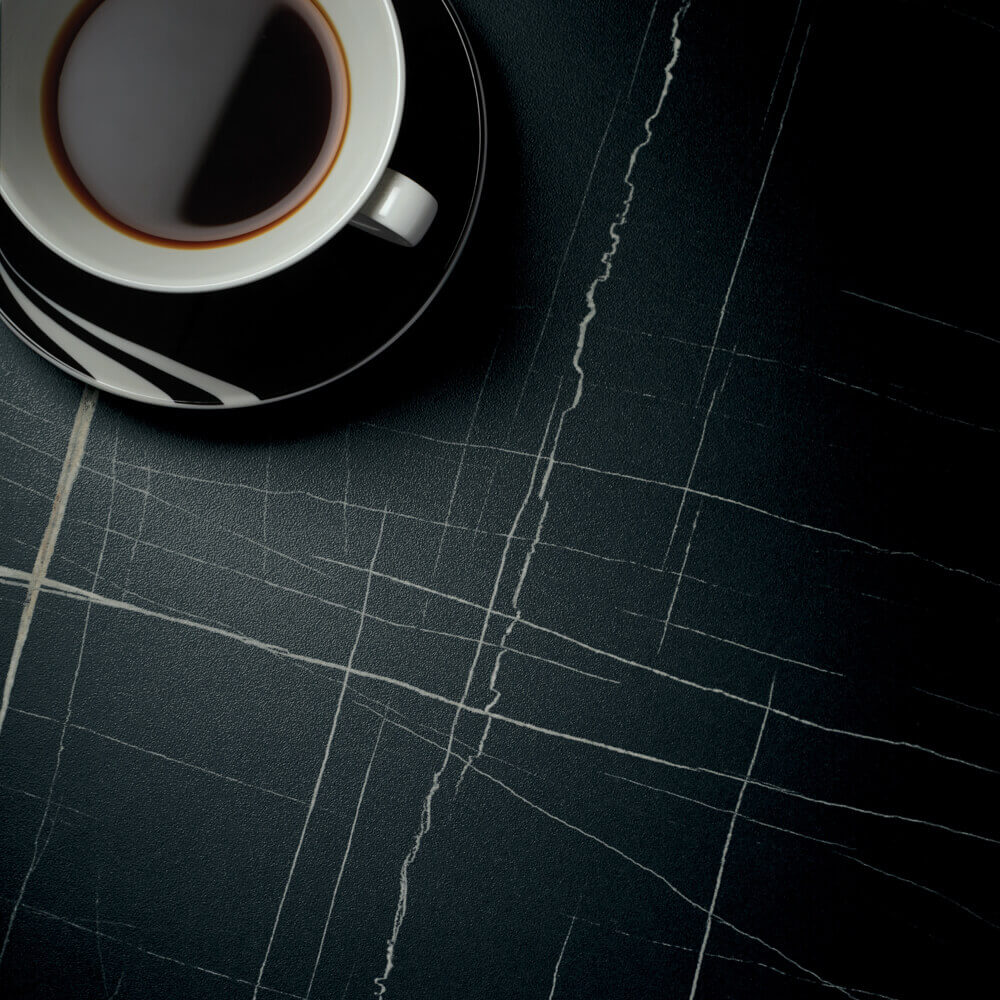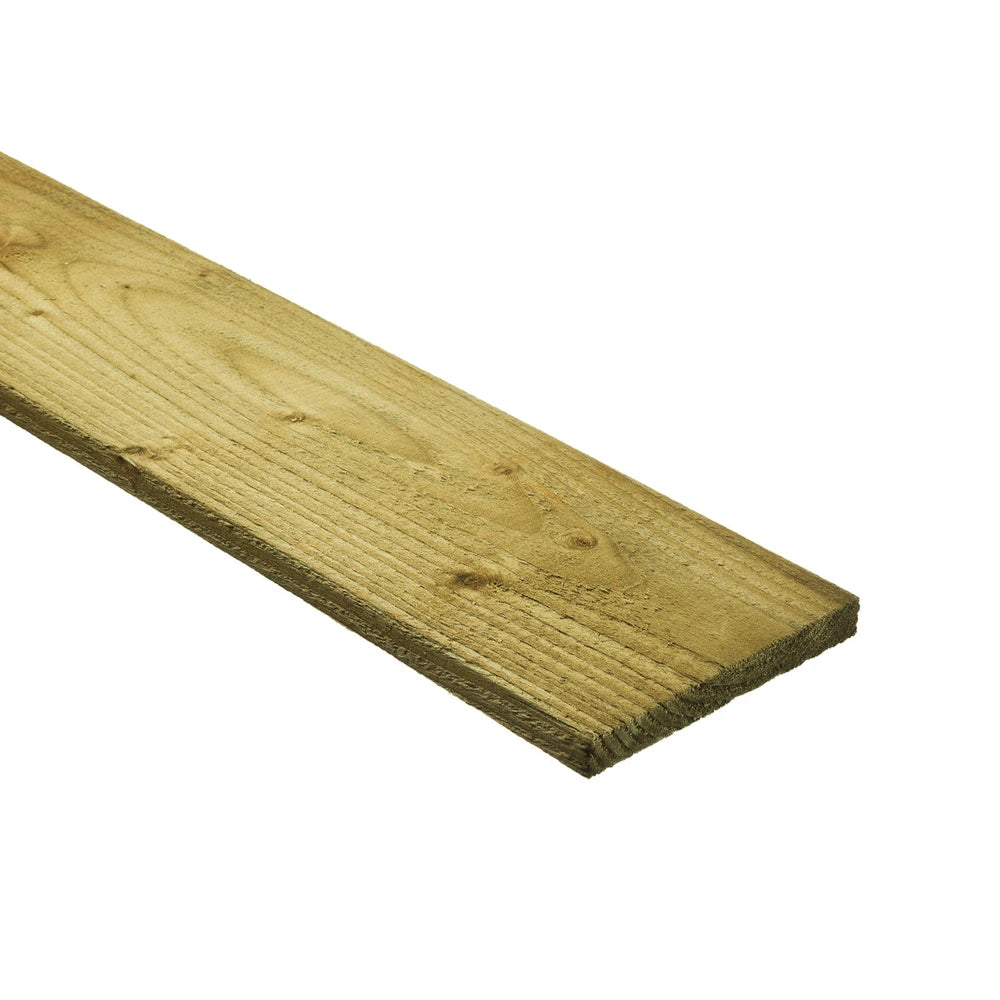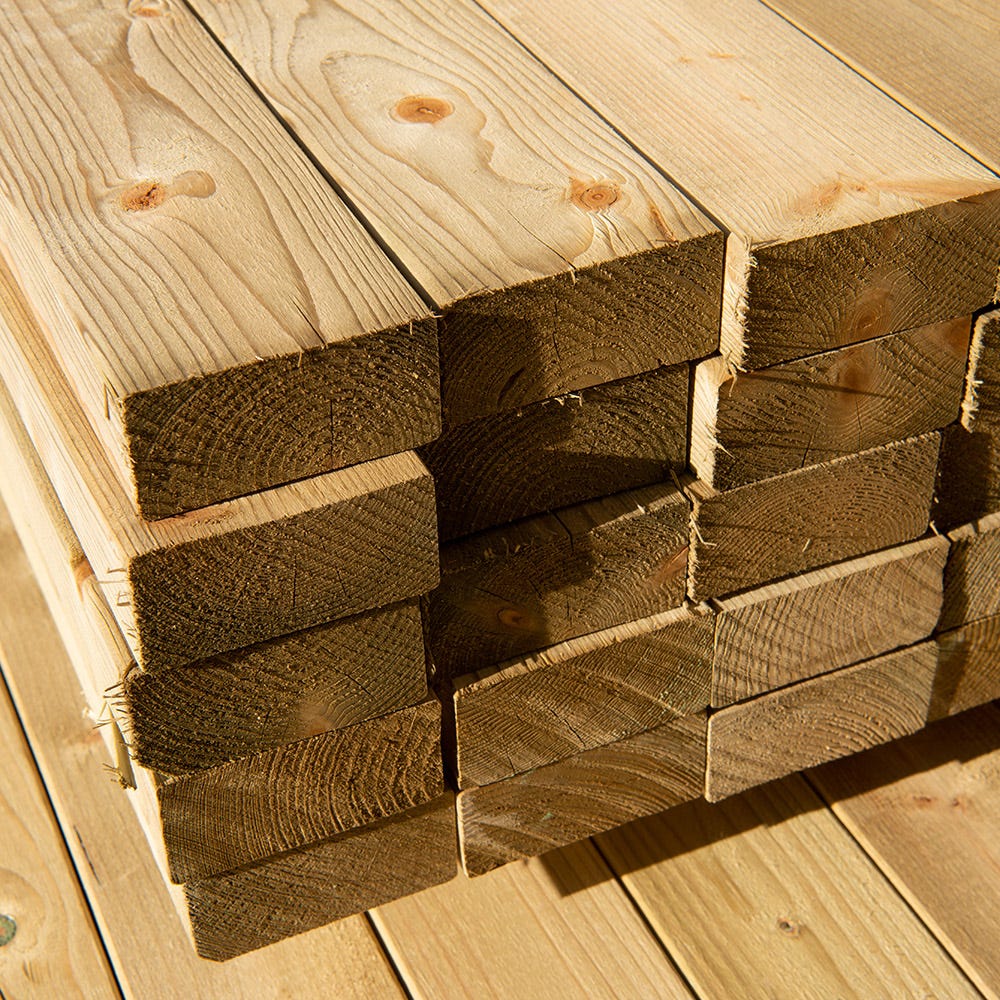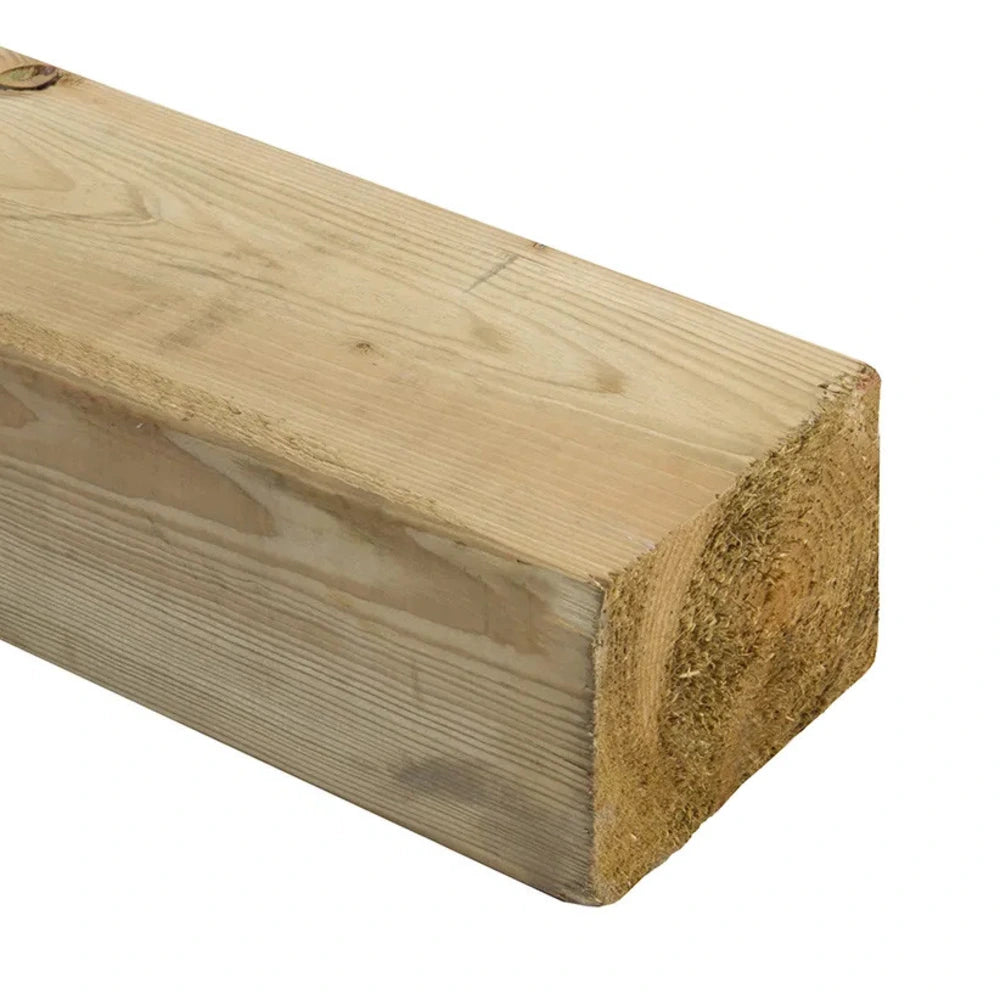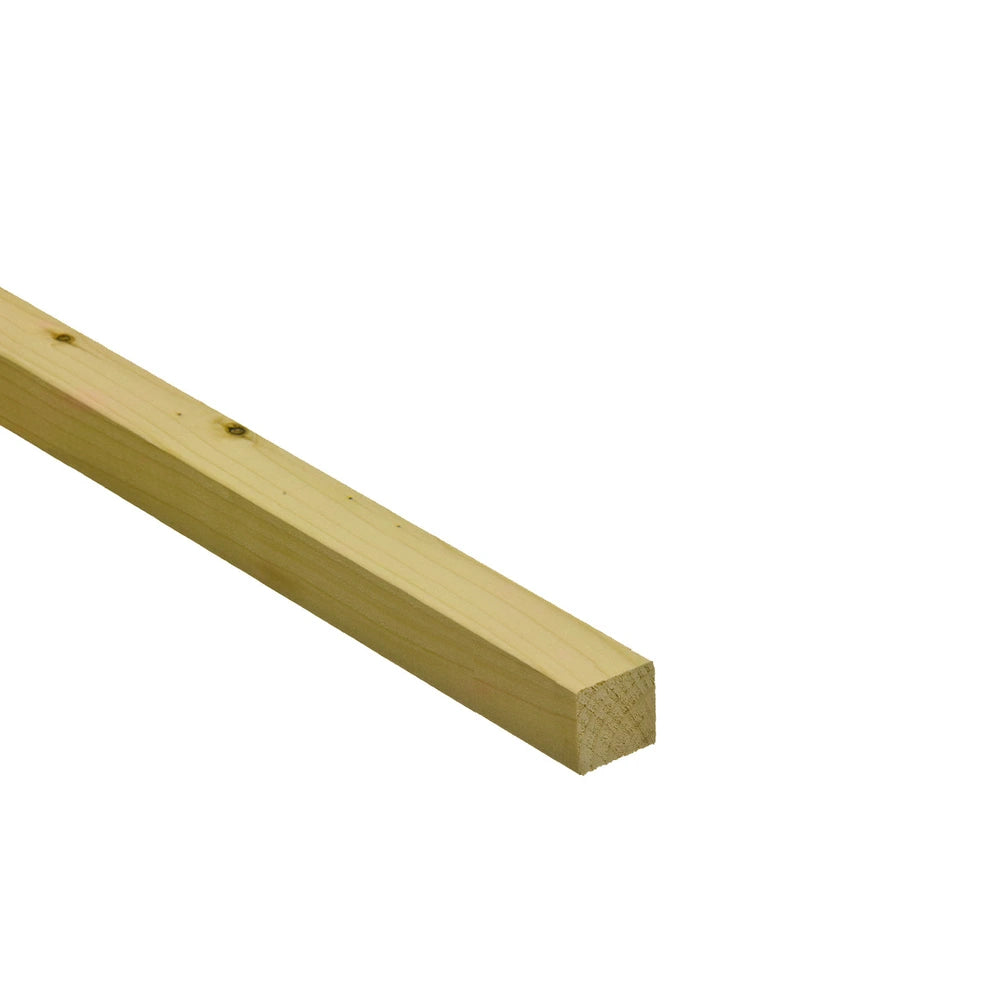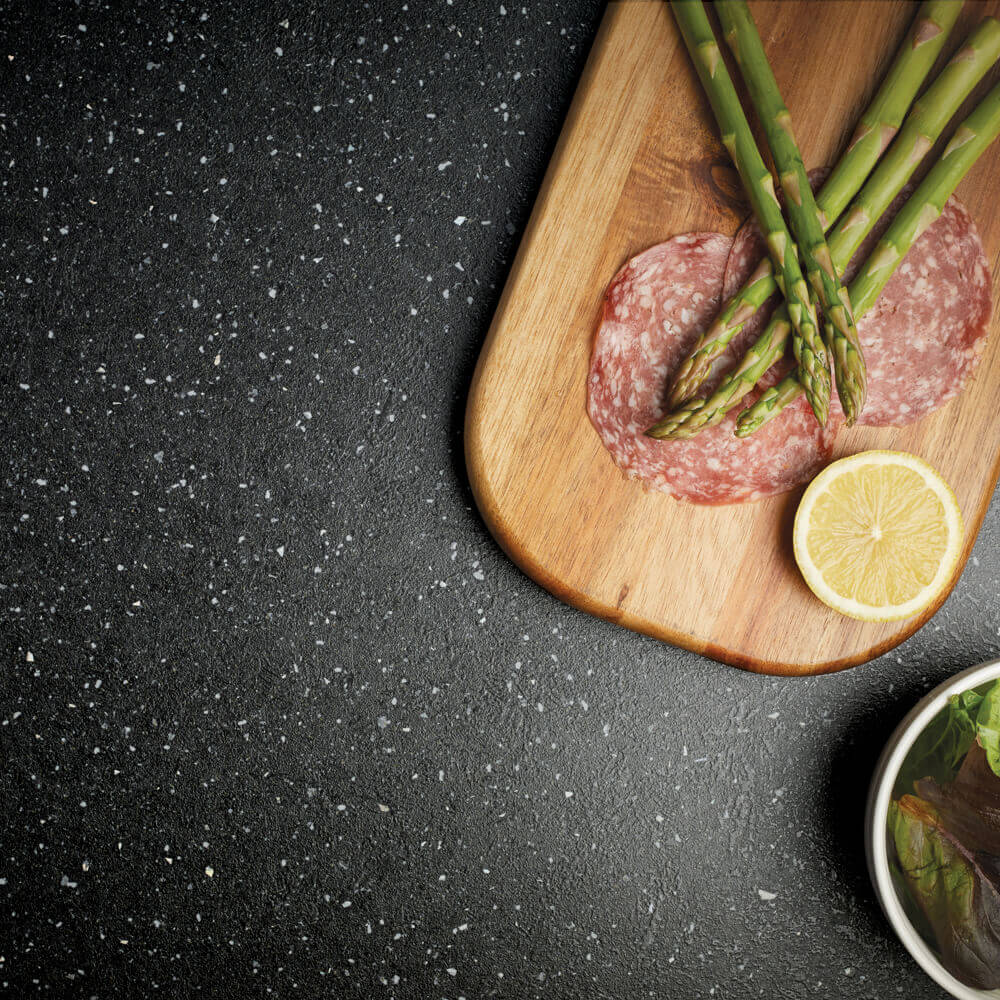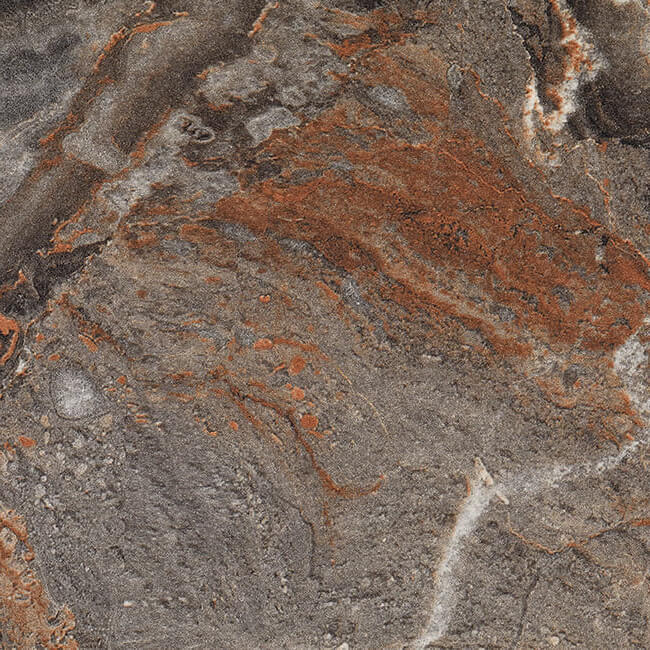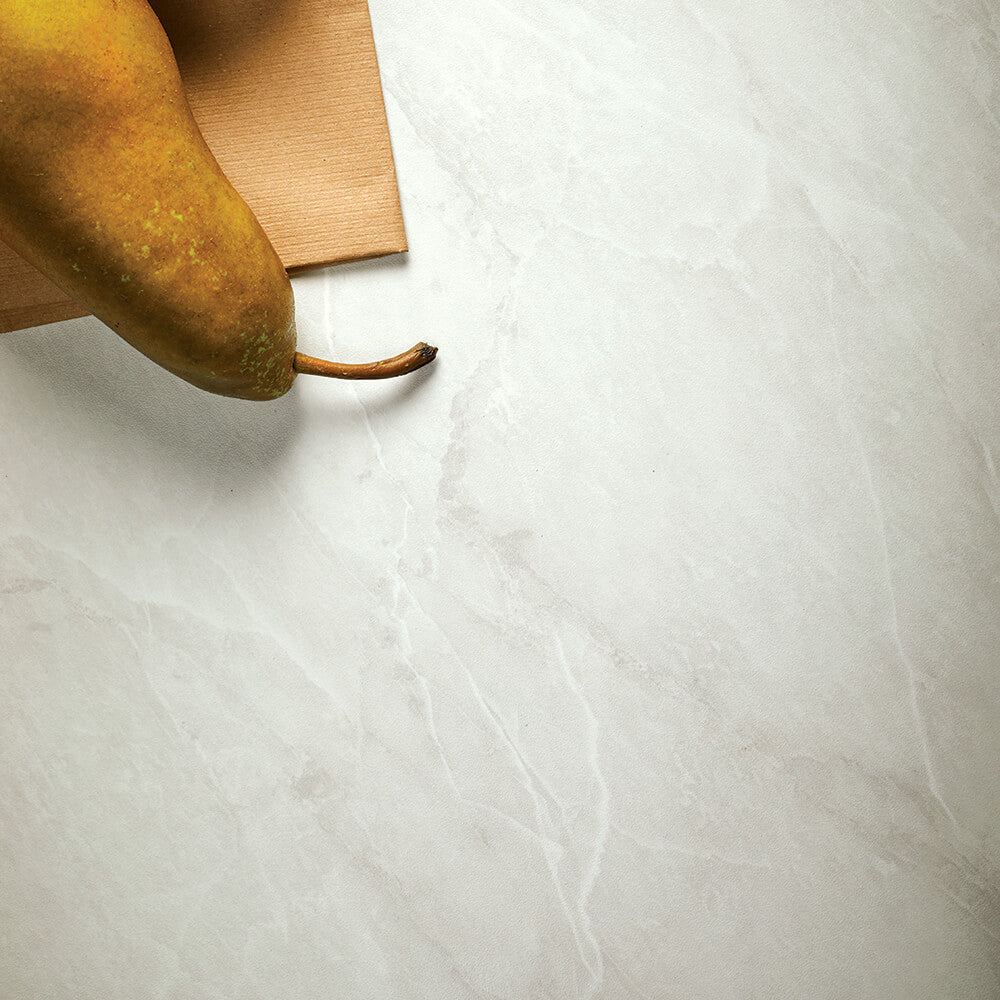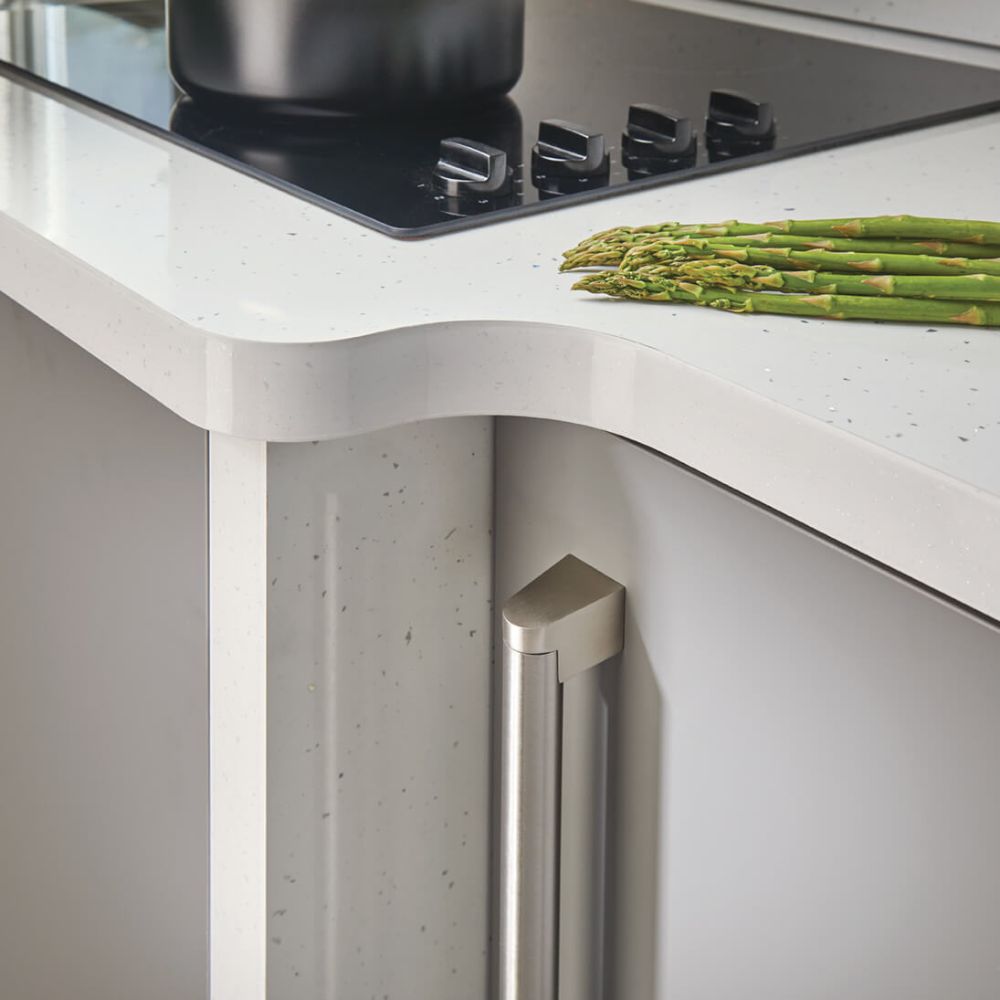Treated Timber
Our range of treated timber is perfect for outdoor projects where protection against moisture and decay is essential.
Filters
14 products
Introduction to Outdoor Timber Projects
Outdoor timber projects demand materials that are both durable and long-lasting, making pressure treated timber an excellent choice. This type of timber undergoes a treatment process that enhances its resistance to rot, decay, and insect damage, ensuring it can withstand the challenges posed by outdoor environments. Treated sawn timber, in particular, is highly suitable for construction projects such as decking, fencing, and garden furniture, thanks to its robust nature and ability to endure various weather conditions. When selecting timber products for outdoor use, it is crucial to choose those that are specifically designed to handle exposure to the elements, providing confidence in the longevity and performance of the finished project. A diverse range of treated timber options is available on the market, including tanalised timber, which caters to different project requirements and offers reliable protection.
Types of Timber
Among the many timber options available, pressure treated timber stands out as a popular choice for outdoor projects due to its enhanced durability and resistance to insects and decay. This treatment process involves infusing the wood with preservatives under high pressure, which helps extend its lifespan significantly. Another option is kiln dried timber, which offers improved stability and durability by reducing moisture content through controlled drying. This makes kiln dried timber particularly ideal for various construction projects where dimensional stability is important. Sawn treated softwood is a versatile timber type commonly used in building applications such as roofing and fencing, offering a balance of strength and workability. Additionally, regularised timber is available for projects requiring precise dimensions and consistent quality, making it suitable for detailed construction work where accuracy is key.
Benefits of Using Timber
Timber is renowned for its durability and longevity, making it an excellent material for outdoor projects that must withstand varying weather conditions. Pressure treated timber, in particular, provides significant protection against rot, decay, and insect infestations, which helps maintain the structural integrity of outdoor constructions over time. Treated sawn timber offers a cost-effective solution, delivering great value for money while ensuring the durability required for construction and landscaping projects. Furthermore, opting for responsibly sourced timber can enhance the environmental sustainability of a project, giving peace of mind that the materials used are harvested with consideration for ecological impact and forest management practices.
Choosing the Right Timber
Selecting the appropriate timber depends heavily on the specific requirements of the project, including whether it will be used indoors or outdoors and the level of durability needed. Pressure treated timber is generally the best option for outdoor projects due to its enhanced resistance to environmental factors, while kiln dried timber may be more suitable for indoor applications where moisture control is critical. The wide variety of timber products available can sometimes make the decision process complex, but factors such as exposure to damp conditions and the type of treatment applied should be carefully considered. Ensuring that the chosen timber matches the intended use and can endure the expected weather conditions is essential for the success and longevity of the project.
Timber Sizes and Dimensions
Treated sawn timber comes in a broad range of sizes and dimensions, with thicknesses varying from 12 mm up to 510 mm, and lengths ranging from 1800 mm to 4800 mm. The choice of size and dimension should be guided by the specific demands of the construction project, including the structural requirements and desired durability. Selecting the correct dimensions not only contributes to the stability and longevity of the finished work but also ensures that the timber can be handled and installed efficiently. Additionally, it is important to consider the cost implications associated with different timber sizes, including VAT, to make informed budgeting decisions.
Cost and Budget Considerations
The price of treated timber can vary significantly depending on factors such as the type of timber, its size, dimensions, and the treatment process it has undergone. While pressure treated timber may come at a higher initial cost compared to untreated timber, the long-term benefits it offers—such as protection against decay and insect damage—often justify the investment. Budget considerations should also include the availability of stock and the order process, as these can influence both cost and project timelines. Careful planning around these factors can help ensure that the project remains within budget while still meeting quality and durability standards.
Safety and Environmental Considerations
When handling timber, it is important to be mindful of safety and environmental concerns, especially regarding the preservatives and treatment methods used. Pressure treated timber is specifically designed to resist rot and decay, but proper safety precautions must be followed during handling and installation to minimize exposure to chemicals. Choosing timber that is responsibly sourced and sustainably produced can help reduce the environmental footprint of a project, supporting forest conservation efforts. Additionally, assessing and mitigating the potential environmental impacts of the project as a whole can contribute to a safer and more responsible execution.
Project Planning and Execution
Thorough project planning is essential to the successful completion of outdoor timber projects. This includes considering factors such as the durability of the materials, maintenance requirements, and the overall upkeep needed to preserve the timber’s condition. Selecting the right type of timber—whether pressure treated, kiln dried, or treated sawn timber—based on the project’s specific needs will help ensure a durable and lasting result. Well-planned execution not only enhances the quality of the finished work but also minimizes the likelihood of future repairs, saving time and resources in the long run.
Maintenance and Upkeep
Maintaining outdoor timber projects regularly is key to prolonging their lifespan. Although pressure treated timber requires relatively low maintenance, it is still important to conduct routine inspections to identify any signs of wear or damage early on. Planning for potential repairs or replacements during the design phase can help ensure that the project remains manageable over time. Applying protective finishes such as paint or stain can further enhance the timber’s durability by shielding it from moisture and UV damage, thereby extending its useful life.
Regional Considerations
The choice of timber and project design can be significantly influenced by regional factors such as local climate and weather patterns. Understanding these conditions is crucial for selecting timber that can withstand the specific environmental challenges of the area. Compliance with local building regulations and guidelines is also necessary to ensure that the project meets safety and quality standards. Additionally, considering the availability of local timber stock and the ordering process can help optimize costs and streamline project timelines.
Sustainable Options
Sustainability is an increasingly important consideration in timber projects. Using responsibly sourced timber helps ensure that the materials come from well-managed forests, reducing environmental impact and supporting biodiversity. While pressure treated timber offers durability and longevity, it is important to weigh the environmental implications of the treatment chemicals used. Opting for sustainably produced and sourced timber can help minimize negative effects on the environment and promote responsible forestry practices.
Application of Pressure Treated Timber
Pressure treated timber is especially suited for outdoor applications like decking, fencing, and general construction due to its enhanced resistance to rot and decay. The specific use of pressure treated timber will vary based on project requirements, including the type of construction and desired durability. It is important to consider the treatment process carefully and be aware of any environmental impacts associated with it. Safe handling and proper installation practices will help reduce any risks related to the chemical preservatives used in the treatment process, ensuring a successful and secure application of the timber.
Why Choose Our Treated Timber for Your Next Project
When it comes to selecting treated timber for your outdoor or construction projects, choosing the right supplier is just as important as choosing the right product. Our extensive collection of treated timber offers a wide range of sizes, types, and treatment options to suit any need, whether you are building decking, fencing, roofing, or garden furniture. Each piece is carefully treated to ensure maximum durability, resistance to rot, decay, and insect damage, giving you confidence in the longevity of your project.
With competitive pricing, reliable stock availability, and expert guidance, we make it easy to find the perfect timber for your specific requirements. Whether you prefer pressure treated, kiln dried, or treated sawn timber, our products meet high standards for quality and performance. Plus, our timber is sourced responsibly to support sustainable building practices.
Browse our collection today to find the ideal treated timber for your project and enjoy the peace of mind that comes with choosing durable, high-quality materials designed to withstand the elements and deliver lasting results.
Frequently Asked Questions (FAQs) About Treated Timber
What is treated timber and why is it used for outdoor projects?
Treated timber is wood that has undergone a preservation process using chemicals to protect it against rot, decay, and insect damage. It is commonly used for outdoor projects because the treatment significantly extends the timber’s durability and longevity in harsh weather conditions.
How does pressure treated timber differ from other types of treated timber?
Pressure treated timber is infused with preservatives under high pressure, ensuring deep penetration of the protective chemicals. This makes it more resistant to environmental factors compared to other treatment methods, making it ideal for construction and outdoor applications.
Can treated timber be painted or stained?
Yes, treated timber can be painted or stained to enhance its appearance and provide additional protection. It is important to ensure the timber is fully dry before applying any finishes and to use products suitable for outdoor use.
What sizes and dimensions are available for treated sawn timber?
Treated sawn timber is available in a wide range of sizes, typically ranging from 12 mm to 510 mm in thickness and from 1800 mm to 4800 mm in length. Choosing the right size depends on the specific requirements of your construction or outdoor project.
Is treated timber environmentally friendly?
Many treated timber products are sourced from sustainably managed forests, making them an eco-friendly choice. However, it is important to consider the environmental impact of the preservatives used in the treatment process and opt for responsibly produced timber whenever possible.

